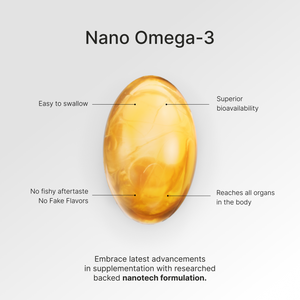Oxidative stress not only interferes with the action of insulin in the body, but it also causes the beta cells of the pancreas, which produce insulin, to not function properly. Therefore: if we have production problems, and at the same time, the produced insulin does not work efficiently, the result would be none other than the disease, type 2 diabetes
What is diabetes
Diabetes is a disease characterized by poor glucose metabolism, which occurs inside each cell of the body. To be able to penetrate the inside of the cell, glucose requires a kind of “key” to allow it to cross the cell membrane. That key is Insulin, a hormone produced by specialized cells of the pancreas known as beta cells. When insulin is not produced, or the produced insulin does not work properly, glucose cannot enter the cells, remains in the circulation, and diabetes arises.
What are the types of diabetes
Diabetes has been classified into type 1 and type 2. In type 1, there is no insulin production by the pancreas. Patients with type 1 diabetes must be treated with insulin injections. In type 2 diabetes, the problem is that insulin production is low, or the hormone does not work as it should.
Why is diabetes considered the epidemic of the 21st century
Diabetes, a disease of many complications. Over the past thirty years, the number of new cases diagnosed with type 2 diabetes has dramatically increased worldwide. In the USA, 13% of the population over 18 years old has type 2 diabetes. The World Health Organization (WHO) relates this to the growth and aging of the population, the increase in obesity, poor dietary habits, and sedentary lifestyles. Due to its consequences, Diabetes is one of the leading causes of morbidity and mortality in developed or developing societies. It has been considered, along with Obesity (Oxidative stress and obesity) as one of the epidemics of the 21st century.
What are the complications of diabetes

Oxidative stress and Diabetes
For the development of type 2 diabetes, there is a factor that is also present in the onset of many other chronic degenerative diseases, and that is oxidative stress (Oxidative stress: myth or reality) (presence of unneutralized free radicals). Since oxidative stress is not linked to a specific symptom, it does not cause pain or fever; and on the other hand, it is not a routine lab test like glucose or cholesterol levels, it is ignored or underestimated, but it is there, silently acting and damaging our biomolecules. Research has shown that the presence of unneutralized free radicals (oxidative stress) is a determining factor for the produced insulin to be ineffective in its function. Similarly, oxidative stress leads to the malfunctioning of the insulin-producing beta cells of the pancreas. Once diabetes appears, the disease itself causes a high production of free radicals, that is, it increases oxidative stress levels, which now, in addition to perpetuating the disease, will contribute to the development of complications. For example, in the renal glomeruli, there are high levels of oxidation, damaging them and leading the patient to kidney failure. Research has shown that diabetic patients not only have high levels of free radicals and other substances that cause oxidation, but they also have reduced antioxidant enzymes, the internal system against oxidation. Therefore, dietary antioxidants are important, (What are the best antioxidant foods) as they would reinforce the already diminished internal antioxidant system. The issue here would be how to consume antioxidant-rich foods daily.
Why antioxidant supplements help in diabetes control
If we cannot obtain the necessary antioxidants through diet, we must look for a solution. For this, antioxidant supplements are the answer. They could play an important role at the three levels of the disease development:- Preventing an excess of free radicals from becoming a factor in the development of type 2 diabetes
- Controlling the high production of free radicals generated in diabetes.
- Preventing excess free radicals from leading to diabetes complications
Both diabetes and oxidative stress are systemic problems, meaning they affect all organs in our body. Therefore, when selecting an antioxidant supplement, we must consider that not all are equal in terms of antioxidant capacity and the ability to cross barriers such as the blood-brain barrier, which covers the brain and central nervous system, which are also affected by diabetes and oxidative stress.





